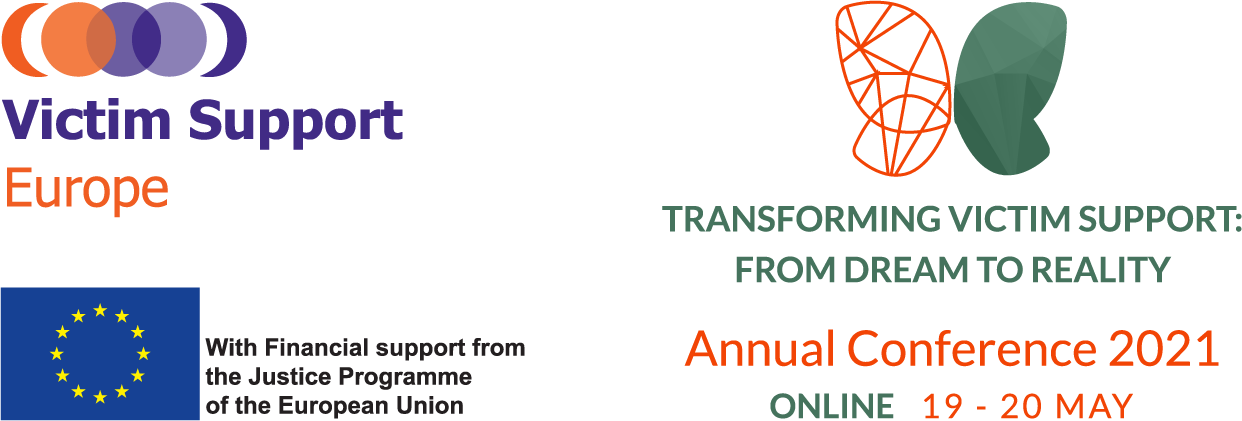The Call for Contributions for VSE’s 2021 Annual Conference Side Events is now open!
The deadline for submitting your proposal is 25 April 2021.
This year’s conference is devoted to celebrating the 3 decades of victim support community in Europe and will be called “Transforming victim support: from dream to reality”. We will bring together the co-founders, partners and members of VSE to reflect upon the progress done by support workers during the last 3 decades and to present innovative approaches to developing comprehensive generic and specialist victim support services for the years to come.
With this in mind, this year’s Conference will explore the history of victims’ rights in Europe, the changing landscape for support of victims and the future of victims’ rights in Member States.
We are inviting inspiring and inspired speakers to contribute to our conference by conducting an online side event:
- A 1-1,5 hour workshop/presentation/educative game/masterclass + 30 min for Q&A – which, depending on the subject could be conducted by one presenter or split between two or three speakers.
We welcome interactive and creative working methods. For example:
- Debating session (online debate),
- Short training or instruction sessions (introducing skills or tools),
- Educative games or simulations (roleplaying, quiz, association cards),
- Short movie/documentary presentation,
- Casuistic session (discussion of relevant issues using real life cases or victims’ stories).

